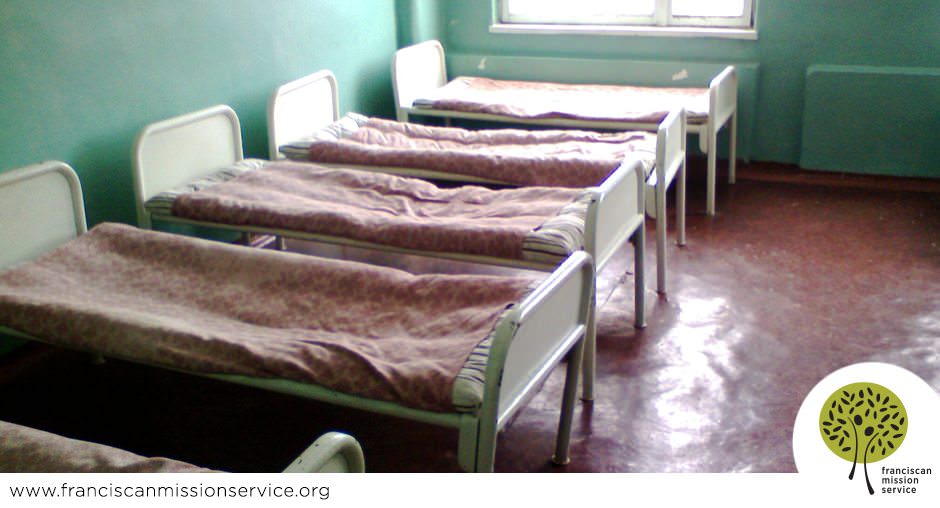¡Nunca de Rodillas!

Editor’s note: In a sequel to her last blog post, “The Weight of Waiting,” missioner Allison Dethlefs continues to learn more about the issue as she stands in solidarity with the Bolivian families who are fighting for better health care for their children.
Recently, I read an article in one of Cochabamba’s main newspapers, Opinión, that stopped me in my tracks. “Children wait for more than a year to be operated on,” read the headline. I quickly flipped the page and read further. The article was talking about my children’s hospital—the one I had stood in line at during too many wee morning hours to count, the one I had brought so many impoverished families to in hopes of consulting specialists about their children with disabilities.
I continued scanning the article, and the details washed over me in a wave of dismay. As it turns out, Hospital de Niño Manuel Ascencio Villarroel is the only level three hospital in Cochabamba and the only pediatric hospital in Bolivia with 39 subspecialists, taking in patients from all over the country. However, ever since it opened fifteen years ago—despite being extremely overcrowded—it hasn’t added even a single bed.
I gazed at pictures of storage rooms turned into doctors’ offices, bathrooms and hallways transformed into recovery rooms and nurses’ stations, the hospital’s single operating room, and cramped spaces under stairs that were now physical therapy and psychology wards.
I thought of the overflowing waiting rooms I had sat in with the patients I accompanied and grimaced at my lack of surprise.
Why don’t they just expand the hospital? I wondered to myself. Then I read the next paragraph. Apparently, in 2010, construction of a new 5-story hospital building commenced to give the children’s hospital plenty of space for expansion. Then, six years ago, after millions of bolivianos had already been invested in the project, the site was abandoned due to flaws in the design and the quality of the structure. Since then, no progress has been made, no backup plan put in place.
When I got home, I did some more research on the pediatric hospital’s situation. There was an article about the families who are forced to travel hundreds of kilometers in public transportation and either get up incredibly early or spend the night in front of the hospital in hopes of getting a “ficha” (appointment with a specialist). I remembered all of the mornings I had waited in the hospital line, cold and tired, in a patient’s stead. The situation felt all too familiar and all too hopeless for me to face.
A week later, I was walking along one of the bustling city center’s main streets when I was stopped by a massive protest blocking off the whole avenue. At first I paid little attention, as marches and protests are common in Bolivia. But then I heard what the people were shouting: “¡Salud, de pie! ¡Nunca de rodillas!” – [We fight for health] on foot, never on our knees! The people were protesting the unfit conditions of the children’s hospital, fighting for the health of their children.
I walked alongside them, feeling hope swell in my chest. The people were speaking out, and I no longer felt so alone.
Reflection question: When have you witnessed a social injustice around you? How can you work with others to speak up against it?
Tagged in:

